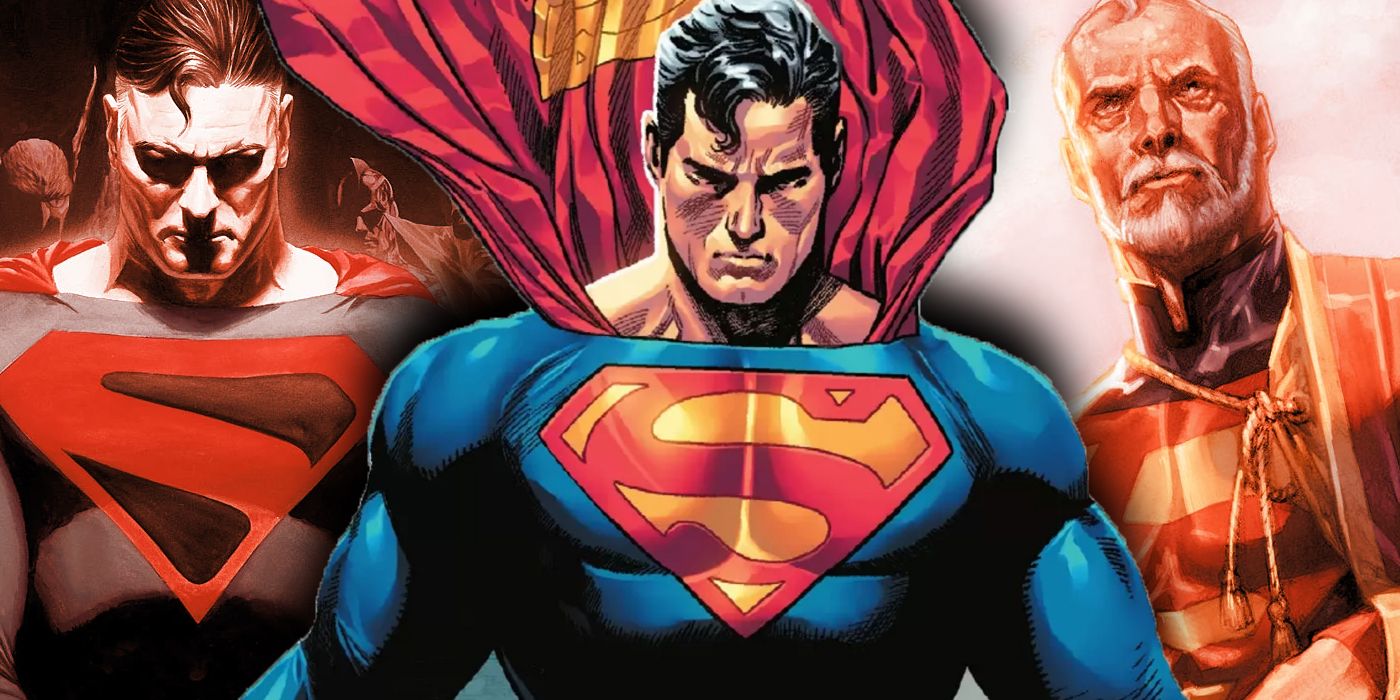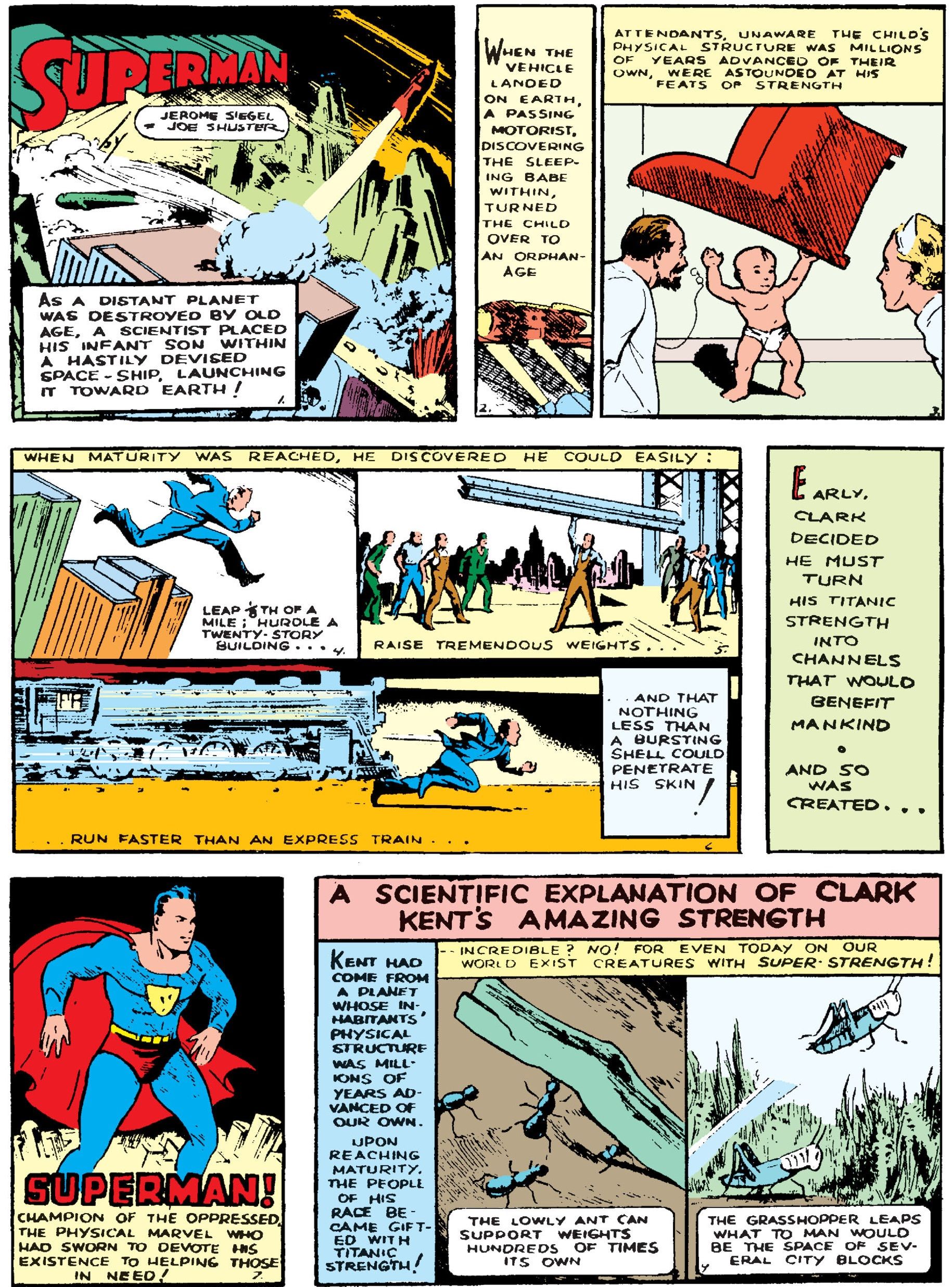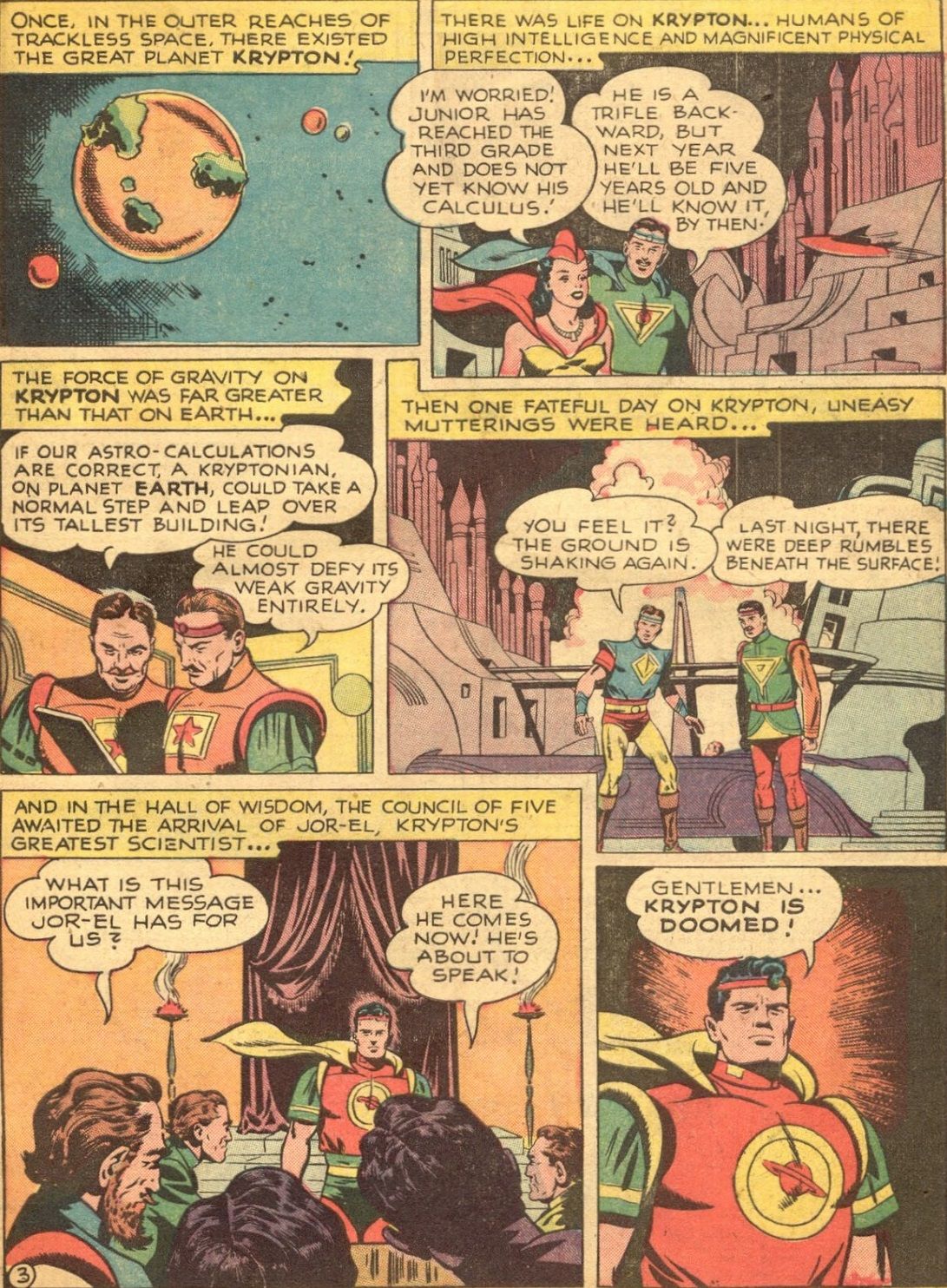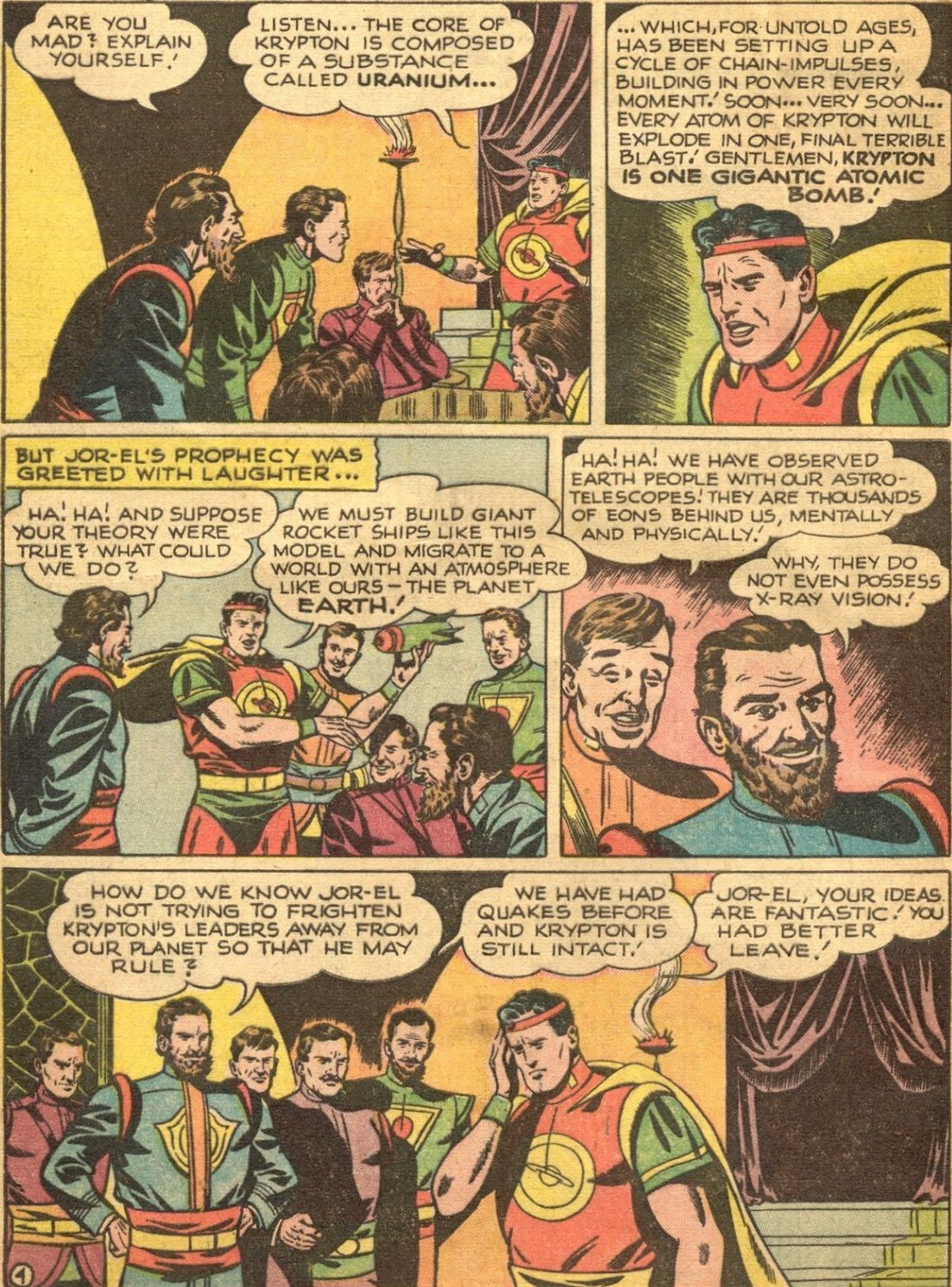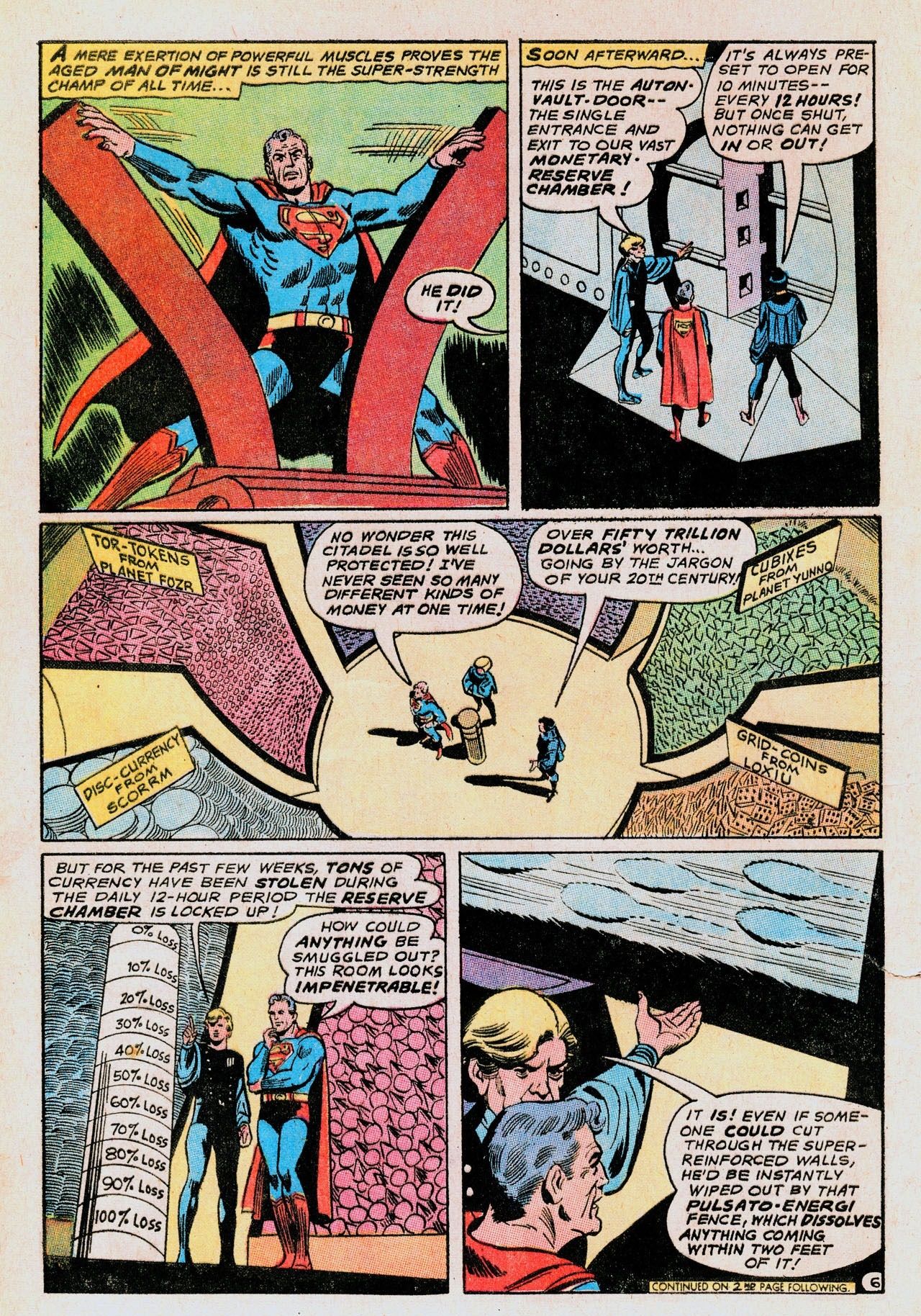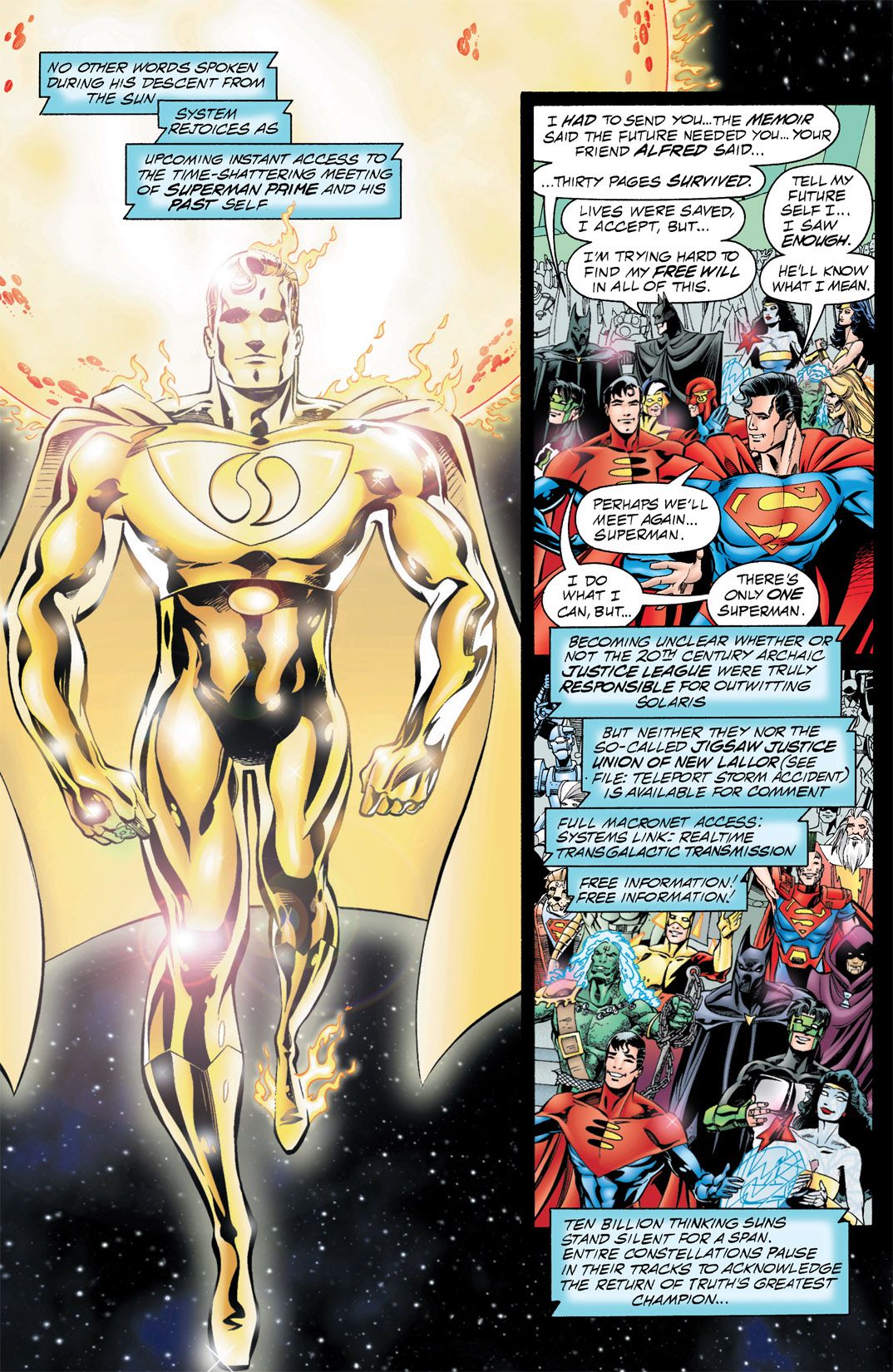Today, we look into the how Superman's powers can deliver the superhero a certain amount of immortality.
In Comic Book Questions Answered, I answer whatever questions you folks might have about comic books (feel free to e-mail questions to me at brianc@cbr.com).
Reader Mike J. wanted to know what, exactly, was Superman's deal regarding immortality. IS he immortal?
Right off the bat, let me quickly explain why questions like these are so tough by posing a very different question. How many sisters does Lois Lane have? For the vast majority of her comic book history, Lois Lane has had only a single sister, Lucy Lane. However, at one point during the Golden Age, Lois had another sister, who was married and had a daughter, Lois' niece, Susie Thompkins (I have written in the past about how Susie was briefly a major recurring character in the Superman books). Clearly, though, no one was really putting any clear thought into things when Susie was introduced. The writers just wanted to have a niece for the story. Continuity was a whole other sort of thing back then (not non-existent, but a whole other thing) and so it is hard to sometimes give definitive answers to questions like "Is Superman immortal?" when DC has gone through so many different approaches to Superman's continuity over the years.
That said, I think that there has been ENOUGH consistency with regards to Superman's possible immortality that if we look at a few different stories from very different eras to see the through line, we get our answer.
SUPERMAN'S ORIGINAL POWERS CAME FROM SIMPLY BEING BORN A SUPER BEING ON KRYPTON
When Superman debuted in Action Comics #1, Jerry Siegel and Joe Shuster kept things pretty darn simple when it came to Superman's superpowers. He simply came from a planet where everyone had superpowers...
Over the years, that origin was baaaaaaaaaaaasically followed (it was the origin that Siegel and Shuster introduced into the comic strips), but as time passed, there were some alterations to the idea. In the first real origin story for the Man of Steel in the Superman comic books, Superman #53 (by Bill Finger, Wayne Boring and Stan Kaye), Finger added in the idea that Earth's gravity played a part in Superman's powers...
but at the same time, he also noted that the Kryptonians had X-Ray Vision and superhuman intellect and stuff like that....
So basically, the original conception of Kryptonians is that they were just inherently long-lived beings, perhaps even inherently immortal, but really, obviously no one was even considering it one way or the other.
THE FIRST 'IMMORTAL SUPERMAN'
However, the first definitive statement on Superman's immortality in the Pre-Crisis Superman era occurred in 1969's Action Comics #385 (by Cary Bates, Curt Swan and Georg Roussos) (released in 1969, the comic was set in 1970, as the writer of the issue, Bates, did not know whether it would be published in the last week of 1969 or the first week of 1970). Superman has to travel to the future to help some folks, but he is not able to use his traditional method of just flying through the time barrier, so he instead uses an old Legion Time Bubble that they lent him that was defective, but still operational.
As you might suspect, traveling through time with a defective time bubble was not the greatest idea that Superman ever had and when he arrives 100,000 years into the future he discovers a bit of a hiccup...
The story establishes that Superman DOES visibly age, but he just doesn't really age in the traditional sense, as he is just as powerful as ever (even MORE so, as we learn later in the story)...
HOW DOES SUPERMAN AGE POST-CRISIS?
That concept (visibly aging, but effectively not aging) was the same in Kingdom Come (by Alex Ross and Mark Waid), where Superman pointedly distinguishes between himself and Earthlings, who die...
However, that was contradicted by a later story, when Grant Morrison built a whole crossover, DC One Million, around the idea that the Justice League of the present day is called into the 853rd century (the year in which the 1 millionth issue of Action Comics would come out if it was on a monthly schedule) for the return of Superman Prime, who had entered the sun at one point and was now exiting and as you can see in DC One Million #4 (by Morrison, Val Semeiks and Prentis Rollins), Superman Prime is in great shape...
This ties into the idea of the sun itself being the key to Superman's powers and is possible immortality. So long as the yellow sun is powering up Superman, he could be immortal, but that doesn't mean he is LITERALLY immortal, because there is always the chance that he could be separated from the yellow sun and under that circumstance, he could very well die out evemntually.
Similarly, there is the whole deal about how he actually DIED already, in the famous "Death of Superman" storyline, so obviously he is not immortal in the traditional sense of the world in that he cannot die, as he obviously CAN die, he just will not die of natural causes so long as he has access to the yellow sun.
HOW ABOUT MODERN DAY SUPERMAN? IS HE IMMORTAL?
The most recent comic book story to establish that Superman is effectively immortal is Action Comics #1000, which came out a few years ago and had a story in it by Tom King, Clay Mann and Jordie Bellaire that shows Superman returning to Earth to visit billions of years after it became uninhabitable so that he could say goodbye to his parents at their grave before the Earth is destroyed.
As you can see, in this comic book, Superman hasn't even aged billions of years into the future.
So, as to the question, Mike, I guess the answer is that yes, Superman is basically immortal (provided he has access to a yellow sun and, you know, a giant space monster with spikes doesn't beat him to death).
Thanks for the question, Mike! If anyone else has a comic book question, feel free to drop me a line at brianc@cbr.com.

